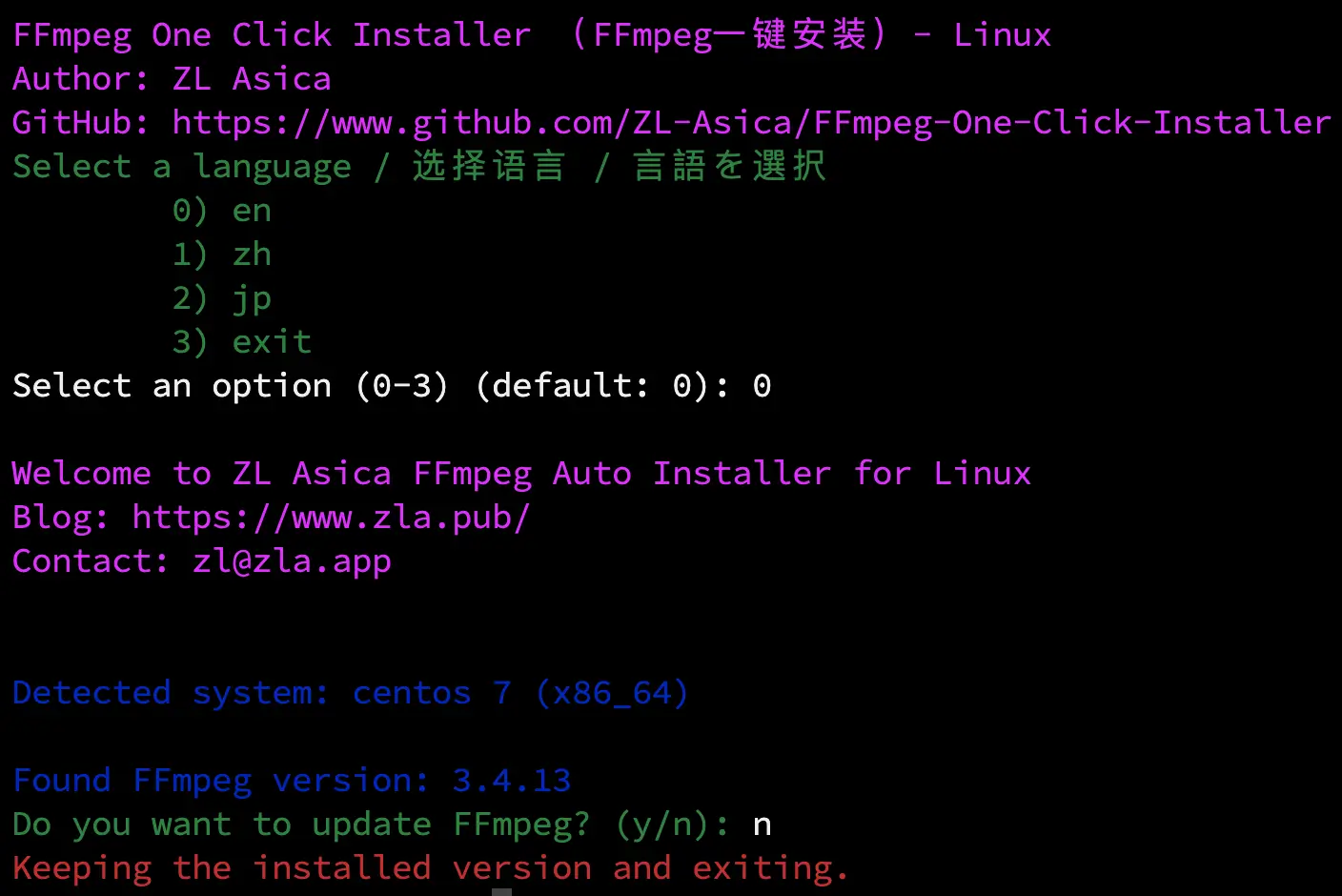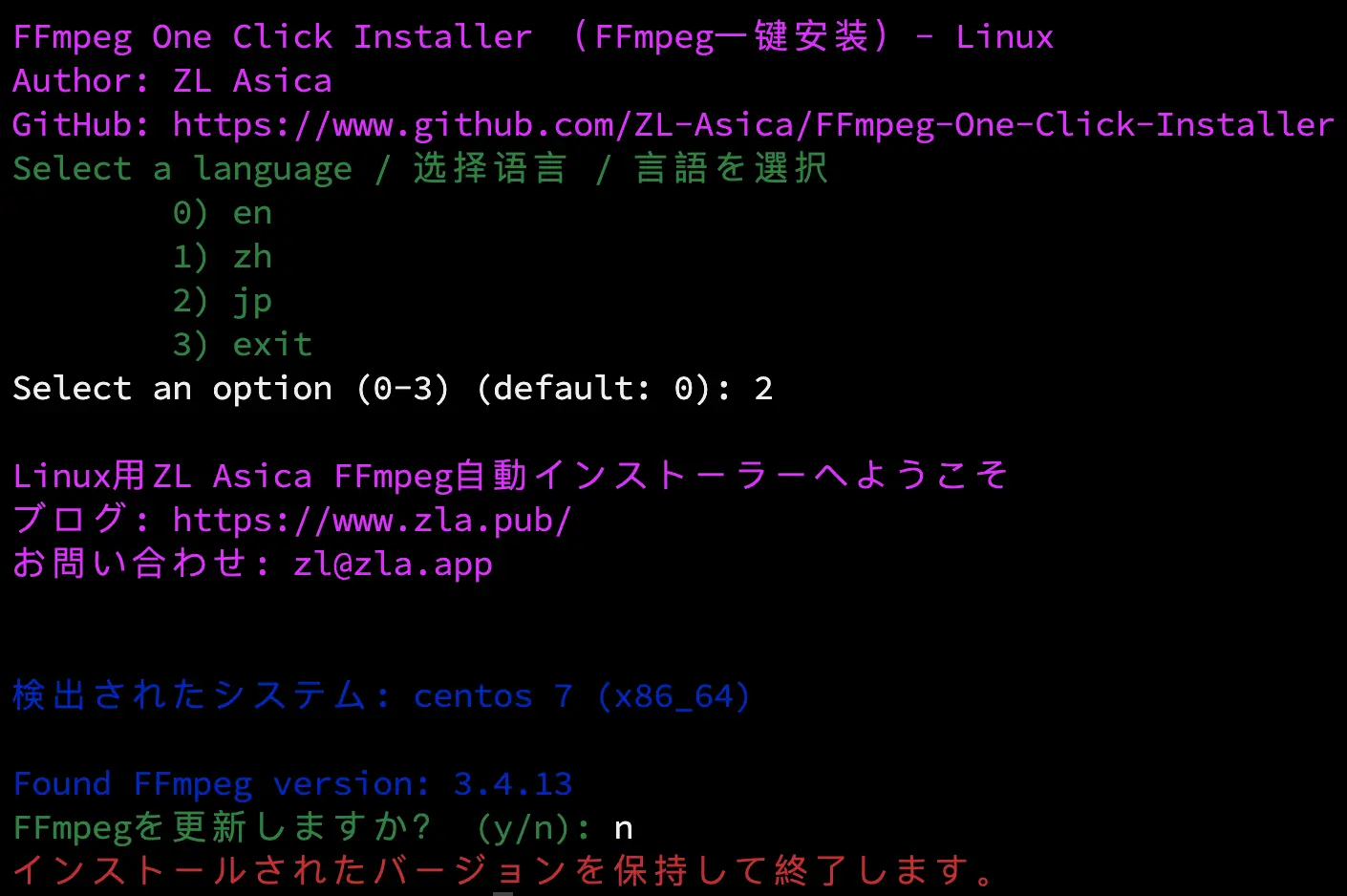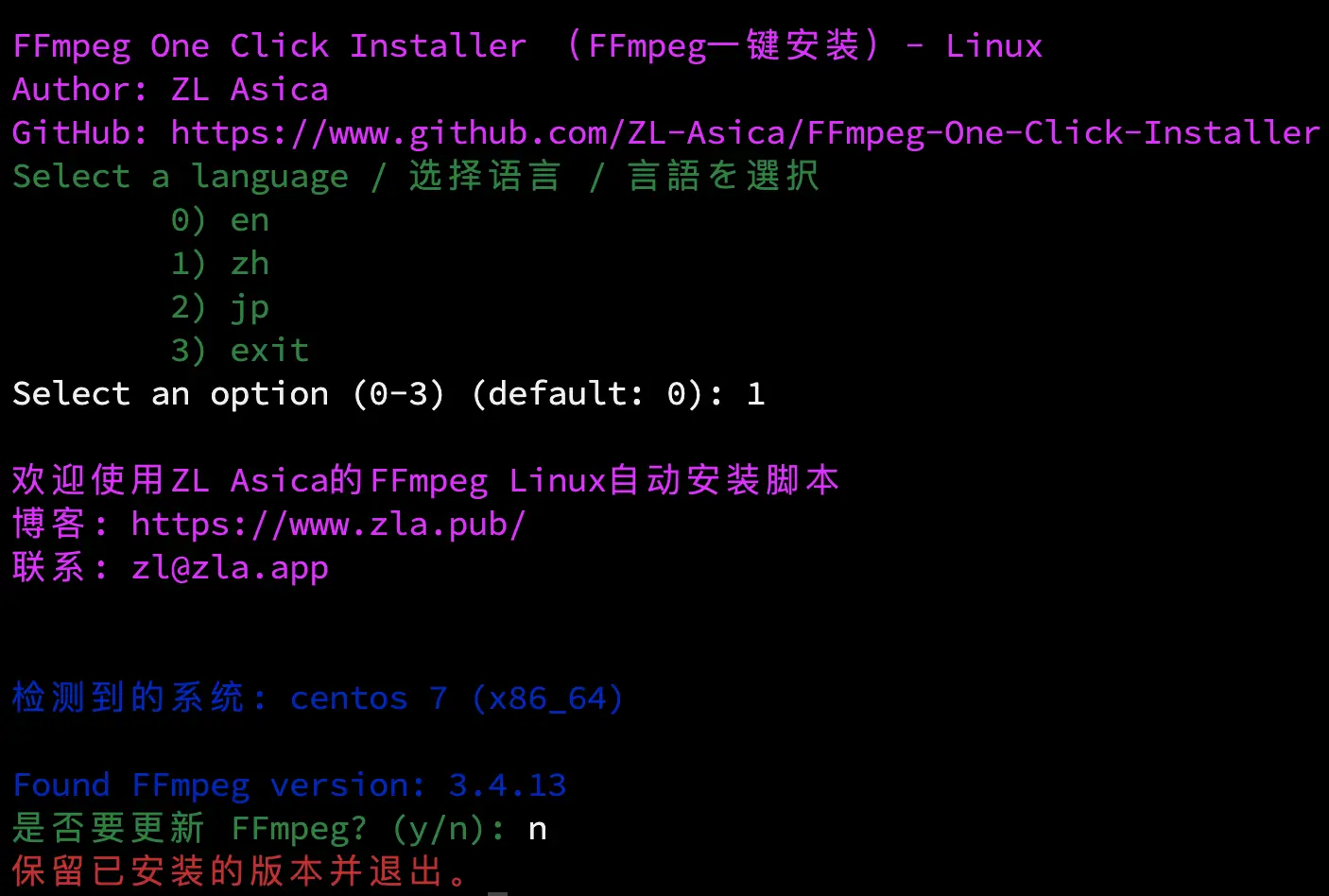This script provides an automated way to install FFmpeg on various Linux distributions and architectures with an easy-to-use interface and robust error handling.
- Wide Distribution Support: Compatible with major Linux distributions like CentOS, Ubuntu, Debian, RHEL, Fedora, and derivatives.
- Multi-Architecture Compatibility: Supports both x86_64 and ARM (aarch64, arm64) architectures.
- Flexible Installation: Choose between quick installation (via package manager) and compilation from source (for maximum control).
- Multi-Language Interface: Supports multiple languages, currently available in English and Chinese.
- Automatic Cleanup: Ensures a clean environment by removing unnecessary files after installation.
- Root privileges (
sudo). - Internet connection for downloading dependencies and script modules.
Run the following one-liner to install FFmpeg interactively:
sudo bash -c "$(curl -fsSL https://raw.githubusercontent.com/ZL-Asica/FFmpeg-One-Click-Installer/main/zla-install-ffmpeg.sh)"or through wget:
sudo bash -c "$(wget -O- https://raw.githubusercontent.com/ZL-Asica/FFmpeg-One-Click-Installer/main/zla-install-ffmpeg.sh)"- Compilation Installation Unavailable: Due to dependency limitations, compiling FFmpeg from source is not supported on CentOS/RHEL/Fedora. Quick installation via
yumis the only available method for these distributions. - Recommendation for Debian/Ubuntu: It is recommended to use the compilation installation method for the best customization and compatibility on Debian/Ubuntu/Raspbian-based systems.
Once the installation is complete, you can use FFmpeg directly by running the ffmpeg command. For example:
ffmpeg -versionIf you encounter any issues, please report them on the GitHub Issues page.
For more advanced usage of FFmpeg, check out the tutorial on my blog (in Chinese).




